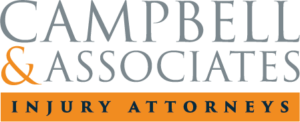Call Today
704-333-0885
Medical Records: A Costly Commodity in the Legal Profession
Medical records are no fun to read; they are not moving Grisham novels or witty half-truths posted on “The Onion.”[1] Indeed, medical records are more likely to put a reader to sleep than Dukeminier on Property … the First Edition. Medical records are, however, essential evidence in personal injury law and other similar areas. Lawyers must carefully read them, and they must pay for them.
A few hundred pages of medical records are presently stacked not-so-neatly on the corner of my desk. Sometime over the next week (or two … or three) I will work my way through the stack and take some notes; but that menacing pile, marginally depleted by my efforts, will soon be replenished with even more pages … and the firm paid handsomely for each page. In spite of their lackluster readability, medical records are strangely expensive. To illustrate just how expensive, consider the following comparisons. A novice bargain-hunter can score 400 pages of the most recently penned Grisham novel for only about ten bucks, or less than three cents (3¢) per page. Catching up on the articles posted on “The Onion” is a cheap investment for even the most cash-strapped 3L at a rate of zero cents (0¢) per page. And, perhaps most supportive of the suggestion that medical records are inordinately expensive, a brand new copy of the Seventh Edition of Dukeminier on Property is less expensive than medical records at just over fifteen cents (15¢) per page.[2] By contrast, 1280 pages of medical records in North Carolina costs a patient or their designated representative $351.25, and that is assuming the provider abides by state law. Under South Carolina law[3], a patient or their designated representative pays a whopping $652.50 plus postage for 1280 pages of medical records.
North Carolina General Statute § 90-411 establishes limits for the amount a healthcare provider may charge for the costs incurred in searching, handling, copying, and mailing medical records to a patient or to a patient’s designated representative.[4] The statute only applies with respect to medical records requested in connection with liability claims for personal injury and claims for Social Security disability.[5] Under the statute, the maximum fee for each request shall be seventy-five cents (75¢) per page for the first 25 pages, fifty cents (50¢) per page for pages 26 through 100, and twenty-five cents (25¢) for each page in excess of 100 pages, provided that the health care provider may impose a minimum fee of up to ten dollars ($10.00), inclusive of copying costs.[6] In other words, a $10.00 minimum fee may be imposed if there are 13 or fewer pages of medical records provided to the patient or their designated representative.
In short, $50 is an asinine amount to pay for one (1) page of your client’s medical records from a doctor or a hospital. Both common sense and state law support that assertion, but I have received invoices from physicians and hospitals asking for that amount for sending only a few pages of medical records to me by facsimile. In fact, I received an invoice for $25.00 just this morning along with two (2) pages of medical records from Northeast Lung Associates. Under the state statute discussed above, the lawful charge in both instances is only $10.00.
What is it about medical records that make them so incredibly valuable in the eyes of healthcare providers? Medical records are printed on standard copy paper, not photo paper or YUPO®[7]. A case of standard paper runs about $29.00 for 2500 pages, or $0.000116 per page.[8] Much of the time, though, healthcare providers use some form of electronic transfer such as secure e-mail or facsimile to send medical records; the price of paper in those instances is irrelevant. In any case, the costliness of medical records cannot be attributed to the price of paper. What about copyright value? Unlike a Grisham novel, there are no royalties paid out to the author; here, the dictating physician. Maybe the hefty price tag can be explained by the elite customer service provided by Health Information Management departments? Those of you who have any experience in the painful exercise of requesting medical records likely snickered at that sarcastic proposition. The fact of the matter is that the customer service provided is normally atrocious; it sometimes takes months, numerous follow-up calls, and resending the release (several times) to obtain medical records.
My modest contention is that many healthcare providers view requests for medical records from attorneys as another shady opportunity to turn a profit … as if the extremely inflated price of prescription medications and hospital gowns is not already enough to scoff at. Some healthcare providers claim in response to my inquiries to merely be unfamiliar with N.C.G.S. § 90-411. I should first point out that ignorance of the law is never a valid defense. Also, I cannot empathize with this excuse where the North Carolina Medical Board makes it abundantly clear that providers are to abide by the statute on their website.[9] I have sent many letters to healthcare providers over the past few years explaining how their invoice violates state law. Occasionally the response I receive is a positive one and the invoice is amended without much fuss to comply with the law. Too many other times, however, the healthcare provider’s response is baffling.
Take, for example, the comments made to me recently by a representative of Novant Health. I placed a call to the Health Information Management Department at Presbyterian Hospital just last week after receiving an invoice for $389.67 for my client’s medical records. Of note, the invoice should have been for $215.00 if the provider had abided by the statute. A supervisor at Novant Health informed me that they follow a “company policy” for billing; she was unwavering when I pointed out how the “company policy” runs afoul of North Carolina law. She did agree to remove a $15.00 “processing fee” but the amended invoice still stood in sharp contrast to the law. The “company policy” approach is interesting, to say the least. If you are ever pulled over by a State Trooper for doing 90 in a 55-miles-per-hour zone try the Novant Health technique. It would go something like this. “You see, Officer, it is my company policy to drive recklessly in a work zone with no regard for the safety of others.” Let me know how that works out for you.
Unfortunately, patients and their attorneys cannot call the police department to report hospitals and doctors who knowingly violate N.C.G.S § 90-411. So where does one turn in this routine situation? After all, it is incumbent upon attorneys to charge their clients only reasonable fees and expenses.[10] I think others will agree with me that it is unreasonable for an attorney to pay healthcare providers exorbitant (illegal) amounts for providing medical records where the client is ultimately responsible for paying the expenses and where a statute explicitly restricts the amounts. Those of us in the legal profession have an affirmative duty to speak out against this practice to guarantee that our clients are not contributing— in direct contravention of the law— to the profit margins of healthcare providers. I have personally called the Office of the Attorney General to complain about these illegal billing practices, but I was told that the issue does not qualify as a consumer complaint. I have called the State Medical Board but I was referred to the State Hospital Licensing Board. Additionally, I have left messages for the director of Health Information Management at Novant Health. Neither the Hospital Licensing Board nor the director at Novant Health has returned my call. My attempts to bring an end to this unlawful practice have, to this point, proven futile. When all else fails, blog about it.
Whereas the state statute allows healthcare providers to charge amounts for medical records which are arguably more than reasonable, some healthcare providers like Novant Health opt for greed over legality. When sending a copy of N.C.G.S. § 90-411 along with a generous letter fails to negate such greed and lawlessness, I suggest the following: Inform the healthcare provider that if three cents (3¢) per page is good enough for Grisham, a lawful seventy-five (75¢) per page should be good enough for them.
It probably will not work, but you will have a good story to tell your colleagues over a beer— then you can raise a derisive toast to corporate greed at the expense of your clients.
[1] I should point out one noteworthy exception. It was once dictated and transcribed, “Physical Exam: Patient smells acrid, multi-mammal at close proximity.” Citation omitted for confidentiality reasons (of course).
[2] 1280 pages of a brand new Dukeminier 7th is $199.80 on Amazon.com.
[3] South Carolina Code of Laws, Title 44, Chapter 115, Section 80. Accessed via: http://www.scstatehouse.gov/code/t44c115.php.
[4] N.C.G.S. § 90-411. Accessed via: http://www.ncga.state.nc.us/enactedlegislation/statutes/html/bysection/chapter_90/gs_90-411.html
[5] Id.
[6] Id.
[7] YUPO is a 100% recyclable, waterproof, tree-free Synthetic Paper. See, http://www.yupousa.com/paper/about-yupo/what-is-yupo.
[9] See, http://www.ncmedboard.org/position_statements/detail/retention_of_medical_records: “Licensees should notify patients of the amount, and under what circumstances, the licensee will charge for copies of a patient’s medical record, keeping in mind that N.C. Gen. Stat. 90-411 provides limits on the fee a licensee can charge for copying of medical records.”
[10] North Carolina Rules of Professional Conduct, Rule 1.5 “Fees”. Accessed via: http://www.ncbar.com/rules/rules.asp.
FREE AND CONFIDENTIAL CASE REVIEW
We want to hear your story, so we can help.
Call Today
704-333-0885



Membership in the Million Dollar Advocates Forum is limited to attorneys who have won million and multi-million dollar verdicts and settlements. You can find the criteria for membership in the Million Dollar Advocates by clicking here. Campbell & Associates Personal Injury Firm does not represent or claim that similar results will be achieved in your case.
The National Trial Lawyers is a national organization composed of the Top 100 Trial Lawyers from each state. Membership to the organization is obtained through special invitation and is extended only to those attorneys who exemplify superior qualifications, leadership, reputation, influence, stature, and profile as trial lawyers, both civil plaintiff and criminal defense. For more information on the National Trial Lawyers organization click here. Campbell & Associates Personal Injury Firm does not represent or claim that similar results will be achieved in your case.


